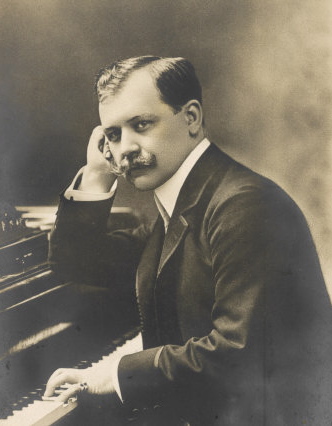Met’s second-cast “Merry Widow” by no means second best
The word “grand” gets tossed around so much in regard to opera, and with such subjectivity, that the concept of sheer entertainment often gets obscured. But an enormous segment of the operatic repertoire since the 16th century has been created just to entertain—not that there’s anything wrong with that.
The Metropolitan Opera is often at its best when the goal is pure entertainment. Susan Stroman’s new production of Lehár’s The Merry Widow (in an English version by Jeremy Sans), which opened last New Year’s Eve, returned Friday night. With a new cast, and principal conductor Fabio Luisi in the pit, the goal was to delight.
The new leads make an ideal romantic duo—mezzo-soprano Susan Graham as the title character, Hannah Glawari, and baritone Rod Gilfry as her rom-com antagonistic love, Count Danilo Danilovitch. These two are old pros, relaxed in their roles, not acting the characters so much as play-acting the parts of opera stars, in between the times when they sing.
While the rest of the cast delivered the extensive spoken dialogue with the rhythms and cadences of Broadway, Graham and Gilfry were amiably conversational, if a little dramatically flat at times. But when they interacted and sang, they commanded the performance through the pleasure of each other’s company. Their waltz duet in the finale Act I was fun and charming, and Graham was tremendous in the Act II aria, “Vilja.” Her voice was pure, shining, and her musical expression far richer than what one would think operetta could contain.
Gilfry has had a career playing cads, from the sinister Don Giovanni to the comical Don Alfonso, and as the aging Count he held a fine balance—vain without being rogue-ish, a man dedicated to pleasure, trying but failing to maintain a narcissistic façade. His singing was clear and rich. Although a touch of what might be a cold impinged on his intonation a bit in Act II, he was fully recovered and sounded bright, firm and clear in Act III.
Bass Alan Opie, as Baron Mirko Zeta, led the supporting characters. What little singing he had was effective, but his quick delivery of his lines kept the pace going. He had an excellent, comic foil in Carson Elrod, in the non-singing role of Njegus, the Baron’s secretary.
Just about stealing the show were soprano Andriana Chuchman as the Baron’s wife, Valencienne, and tenor Stephen Costello as her lover, Camille de Rosillon. They began the denouement of Act II with excellent singing of the duet, “Love is in my Heart.” In the misunderstanding that follows—when Glawari and Rosillon appear to be on their way to marriage—Costello and Graham were strongly affecting, and the, well, grand finale of the act set the audience’s experience on an upward arc.
Chuchman was fabulous, luminous when she sang, dynamic when she acted, and an impressively athletic dancer when she joined the grisettes at Maxim’s in Act III.
The onstage transition from Act II to Act III was spectacular, part of the color, dazzle and energy of Stroman’s production. The stage is packed with sequins and gold-braid, but the constant sense of motion, through blocking and dancing, is the essential foundation to the show.
Under Luisi, the orchestra sounded polished. If they or the singers had an extra amount of rubato at times, it seemed less an error and more a relaxed relishing of the music and production. The grisettes kicked and the singing clicked—that’s entertainment.
The Merry Widow continues through May 7. metopera.org






